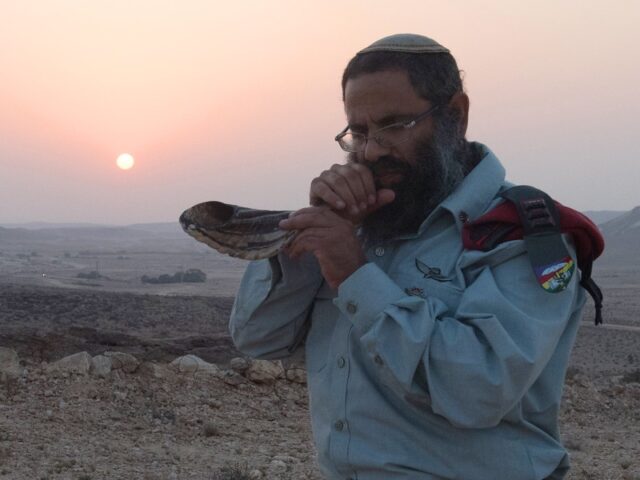The State of Israel and the Jewish world are ringing in the Jewish New Year of 5785 at sundown on Wednesday, October 2, with Israel at war on seven fronts and Jewish people around the world experiencing a wave of antisemitic attacks.
On the eve of the holiday, known in Hebrew as Rosh Hashanah (“Head of the Year”), Iran fired nearly 200 ballistic missiles at Israel, most of which were intercepted, but which sent the entire country into bomb shelters. Two gunmen also opened fire on civilians in the city of Jaffa, near Tel Aviv, in a terror attack that killed seven people, including a mother shielding her baby, and wounded nine, and for which the Hamas terrorist group later claimed responsibility.
Israel launched a ground invasion of Lebanon earlier in the week, continuing its counterattack against Hezbollah, after the Iran-backed terror organization had fired upon civilian communities in northern Israel for nearly a year.
It also bombed oil storage facilities and power plants in Yemen, following ballistic missile attacks by the Houthis.
In addition, Israel is still at war with Hamas in Gaza; battling terrorists in Judea and Samaria (the West Bank); and facing missiles and drones fired by Iran-backed Shiite militias in Iraq — a total of seven fronts facing the small nation.
The holiday begins at sundown and lasts for two days, followed immediately by the Jewish Sabbath, which begins on Friday at sundown and lasts until Saturday evening at nightfall. Holiday traditions include lengthy prayers, eating apples dipped in honey (for a sweet new year), and blowing a shofar (usually, a ram’s horn) to inspire repentance.
Rosh Hashanah kicks off a season known as the High Holidays. They include Yom Kippur, also known as the Day of Atonement, which involves a 25-hour fast that starts at sundown on October 11 and lasts until nightfall on October 12; Sukkot, the Feast of Tabernacles, which starts at sundown on October 16 and lasts through October 18; Shemini Atzeret, which starts at sundown on October 23 and lasts through October 24; and Simchat Torah, which starts at sundown on October 24 and lasts through October 25, followed by the Sabbath on October 25 and 26. There are several intermediate days of Sukkot from October 19 through October 22 that are festive, but not holy, days.
Joel B. Pollak is Senior Editor-at-Large at Breitbart News and the host of Breitbart News Sunday on Sirius XM Patriot on Sunday evenings from 7 p.m. to 10 p.m. ET (4 p.m. to 7 p.m. PT). He is the author of The Agenda: What Trump Should Do in His First 100 Days, available for pre-order on Amazon. He is also the author of The Trumpian Virtues: The Lessons and Legacy of Donald Trump’s Presidency, now available on Audible. He is a winner of the 2018 Robert Novak Journalism Alumni Fellowship. Follow him on Twitter at @joelpollak.

COMMENTS
Please let us know if you're having issues with commenting.